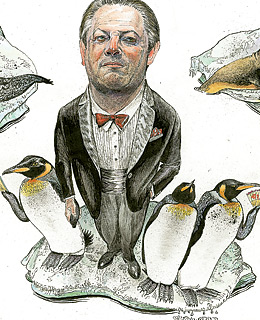
Al Gore
Al Gore understands the science of global warming better than anyone else in the world of politics. His interest was sparked when he was a student at Harvard, studying with the legendary geochemist Roger Revelle, who realized that humanity's pell-mell burning of fossil fuels could make the earth a vastly different—and warmer—place.
Almost as soon as Gore was elected to Congress in 1976, he began conducting hearings on global warming. He investigated the science, holding roundtable discussions in his office with climatologists. Just as important, he learned how hard it would be to overcome the resistance of special interests, whose strategy would be to cast doubt on global-warming science, just as cigarette manufacturers cast doubt on the link between smoking and cancer.
After the 2000 election mess, Gore, now 59, might have had an easier life. Instead he took up an even tougher battle. An Inconvenient Truth, his movie and book, has moved the global-warming debate like nothing else before it. But as the planet edges closer toward environmental tipping points from which we could never recover, there is much more to be done. The most important chapters in Gore's story may remain to be written.
Hansen is director of NASA's Goddard Institute for Space Studies